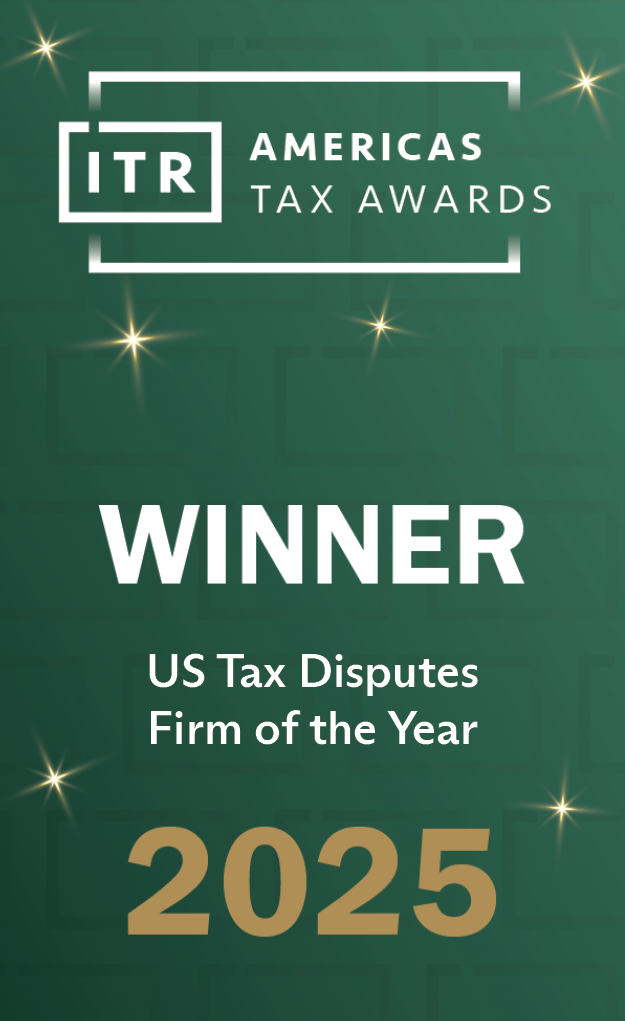Presented below is our summary of significant Internal Revenue Service (IRS) guidance and relevant tax matters for the week of December 16 – 20, 2019.
December 16, 2019: The IRS released a notice extending the phase-in period for the enforcement and administration of section 871(m) of the IRC. The notice extends the transition relief provided in Notice 2018-72, 2019-40 I.R.B. 522, for two years. As a result, the regulations under section 871(m) will not apply to any payment made with respect to a non-delta-one transaction issued before January 1, 2023. The IRS noted that the anti-abuse rule provided in §1.871-15(o) will continue to apply during the phase-in years.
December 16, 2019: The IRS issued final regulations providing guidance regarding a corporation’s distribution of stock or securities of a controlled corporation without the recognition of income, gain or loss. More specifically, the regulations address how to determine whether a corporation is a predecessor or a successor of a distributing controlled corporation for purposes of section 355(e) of the IRC. The regulations also address the extent to which section 355(f) causes a distributing corporation—and in some cases, its shareholders—to recognize income or gain on the distribution of stock or securities of a controlled corporation. The final regulations became effective on December 18, 2019.
December 17, 2019: The IRS issued final regulations relating to certain financial products that provide for payments that are contingent upon or determined by reference to US source dividend payments. The regulations define the term broker for purposes of section 871(m) of the IRC, and provide guidance on how to identify which party to a potential section 871(m) transaction is responsible for determining whether that transaction qualifies as a section 871(m) transaction if multiple brokers or dealers are involved. The final regulations withdraw the temporary regulations under Treas. Reg. § 1.871-15T.
December 17, 2019: The IRS released a revenue ruling that provides various prescribed rates for federal income tax purposes for January 2020. These rates include the applicable federal rates for the current month for purposes of both section 1274(d) and section 1288(b) of the IRC, the adjusted federal long-term rate and the long-term tax-exempt rate in section 382(f), and the federal rate for determining the present value of an annuity, among others.
December 17, 2019: The IRS released a revenue procedure providing that the third six-year remedial amendment cycle for pre-approved defined benefit plans begins on May 1, 2020, and ends on January 31, 2025. The on-cycle submission period for providers to submit applications for opinion letters for pre-approved defined benefit plans begins on August 1, 2020, and ends on July 31, 2021.
December 19, 2019: The IRS issued a news release regarding final regulations that provide details about investment in qualified opportunity zones (QOZ). The final regulations provide guidance for taxpayers eligible to make an election to temporarily defer the inclusion of certain eligible gain from gross income. The regulations permit the deferral of all or part of a gain that would otherwise be included in income for corresponding amounts that are invested into a qualified opportunity fund; the gain is deferred until an inclusion event or Dec. 31, 2026, whichever is earlier. The regulations provide a list of inclusion events.
December 20, 2019: The IRS issued proposed regulations under section 162(m) of the IRC, which limits the deduction for certain employee remuneration in excess of $1,000,000 for federal income tax purposes. The proposed regulations implement the amendments made to section 162(m) by the Tax Cuts and Jobs Act. The IRS requests comments by February 18, 2020, and has scheduled a public hearing for March 9, 2020.
December 20, 2019: The IRS released its weekly list of written determinations (e.g., Private Letter Rulings, Technical Advice Memorandums and Chief Counsel Advice).
Special thanks to Jenni Saperstein in our Chicago office for this week’s roundup.







